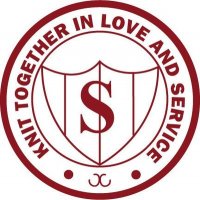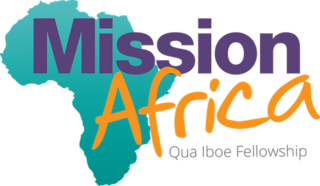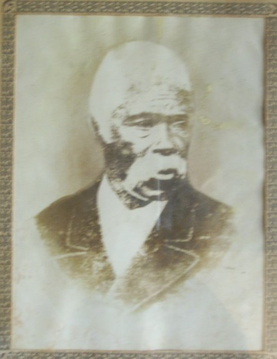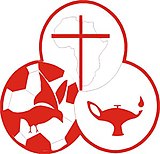
The Moravian Church, or the Moravian Brethren, formally the Unitas Fratrum, is one of the oldest Protestant denominations in Christianity, dating back to the Bohemian Reformation of the 15th century and the Unity of the Brethren founded in the Kingdom of Bohemia, sixty years before Luther's Reformation.

Southlands College is a Girls' school located in Galle, Sri Lanka, founded in 1885 by the Wesleyan Methodist missionaries. Southlands College is situated within the historical Galle fort.
Education in Kenya refers to the education system in Kenya. It is considered a basic right that should be offered to every individual. Education in Kenya predates to as early as the 18th century among the Swahili people. The earliest school was established by missionaries in Rabai. During the colonial era, the number of Kenyans with exposure to education steadily increased and a good number of them were privileged to proceed abroad for further education.

Education in Sudan is free and/or compulsory for children aged 6 to 13 years. Primary education up to the 2019/2020 academic year consists of eight years, followed by three years of secondary education. The primary/secondary educational ladder of 6+3+3 years was switched in 1965 and during the Omar al-Bashir presidency to 8+3 and is scheduled, during the 2019 Sudanese transition to democracy, to return to 6+3+3 in the 2020/2021 academic year. The primary language at all levels is Arabic. Starting in the 2020/2021 academic year, English is to be taught starting at kindergarten. Schools are concentrated in urban areas; many in the South and West were damaged or destroyed by years of civil war. In 2001 the World Bank estimated that primary enrolment was 46 percent of eligible pupils and 21 percent of secondary students. Enrolment varies widely, falling below 20 percent in some provinces. Sudan has 36 government universities and 19 private universities, in which instruction is primarily in Arabic.

Andrew Jackson Foster (1925–1987) was an American pioneer of deaf education in several countries in Africa. In 1954, he became the first Deaf African American to earn a bachelor's degree from Gallaudet University, the American university for the Deaf, and the first to earn a master's degree from Eastern Michigan University. He earned a second master's degree from Seattle Pacific Christian College, also in education. He founded Christian Mission for the Deaf African in 1956 and set out for Accra, Ghana, where he established the first school for the deaf in West Africa.

Rosslyn Academy is a private Christian school in Gigiri, Nairobi, Kenya. It is an international, coed, day school with a North American curriculum and classes from preschool to twelfth grade.
Daniel Kumler Flickinger was an American bishop of the Church of the United Brethren in Christ, elected in 1885. He was the twenty-fifth Bishop of this Christian denomination, and the first elected to the office of Missionary Bishop.
Assumption College Sriracha (ACS) is a private, Catholic-run school on the Eastern Seaboard of Thailand, in Si Racha District, Chonburi Province. The campus covers 120 acres (0.49 km2), and has play spaces, football pitches, a swimming pool, and a sports stadium.

Education in Nigeria is overseen by the Federal Ministry of Education. The local authorities take responsibility for implementing state-controlled policy regarding public education and state schools. The education system is divided into Kindergarten, Primary education, Secondary education, and Tertiary education. Nigeria's federal government has been dominated by instability since declaring independence from Britain, and as a result, a unified set of education policies is yet to be successfully implemented. Regional differences in quality, curriculum, and funding characterize the education system in Nigeria. Currently, Nigeria possesses the largest population of out-of-school learning youths in the world. The educational systems in Nigeria are divided into two the public where the student only pays for Parents Teachers Association (PTA) while the private where students pay school fees and some other fees like sports, exam fees, computer fees etc. and they are costly
Theological College of Northern Nigeria (TCNN) is a private, Christian college located in Bukuru, Plateau State, Nigeria.
Olivet Baptist High School is a Baptist secondary school in Oyo, Nigeria, located on a hillcrest named Olivet Heights. It is affiliated with the Nigerian Baptist Convention.

The Sakeji School is a school near Kalene Hill in the remote Ikelenge District of north-western Zambia, just north of Mwinilunga. It is a Christian boarding school for primary students. It is mainly intended to serve the children of missionaries in the region, including Zambia, Angola and the Democratic Republic of the Congo, but the school also accepts expatriate and Zambian children.

Mission Africa is an interdenominational, evangelical, Christian mission organisation. When founded in 1887, by the Irish independent missionary Samuel Bill, the organisation ministered in Nigeria. Today, it primarily works in Nigeria, Burkina Faso, Chad and Kenya while maintaining headquarters in Belfast, Northern Ireland. Its current Chief Executive is the Reverend Dr Paul Bailie.

Louis Sylvester Bauman was a Brethren minister, writer, and Bible conference speaker, holding influential leadership in the Brethren Church and the "Grace Brethren" movement which evenly divided the denomination in 1939. He served in several pastorates, in particular the First Brethren Church of Long Beach, California where he was pastor for thirty-four years (1913–1947).
Lutheran Brethren Seminary (LBS) is an institute of theological higher education of the Church of the Lutheran Brethren of America (CLBA), located in Fergus Falls, Minnesota. It shares its campus with the denominational headquarters of the CLBA and the denomination’s high school, Hillcrest Lutheran Academy. The seminary’s primary mission is to train and equip pastors, missionaries, and Christian lay workers for ministry in the Church of the Lutheran Brethren and other church bodies.

The Sierra Leone Grammar School was founded on 25 March 1845 in Freetown, Sierra Leone, by the Church Mission Society (CMS), and at first was called the CMS Grammar School. It was the first secondary educational institution for West Africans with a European curriculum. Many of the administrators and professionals of British West Africa were educated at the school.

The Congo-Balolo Mission (CBM) was a British Baptist missionary society that was active in the Belgian Congo, the present day Democratic Republic of the Congo, from 1889 to 1915. It was the predecessor of the Regions Beyond Missionary Union (RBMU), established in 1900, which today is called World Team.

Baptist Boys’ High School is a Baptist secondary school in Abeokuta, Ogun State, south-west Nigeria. It had a student body of 2,000 students as of the 2022–2023 academic year. The student population has decreased by almost half from the peak of 2155 in 1998–1999 academic year, partly in response to a concern about overcrowded facilities. BBHS is on its permanent site, Oke-Saje. It is affiliated with the Nigerian Baptist Convention.

Alexander Worthy Clerk was a Jamaican Moravian pioneer missionary, teacher and clergyman who arrived in 1843 in the Danish Protectorate of Christiansborg, now Osu in Accra, Ghana, then known as the Gold Coast. He was part of the first group of 24 West Indian missionaries from Jamaica and Antigua who worked under the aegis of the Basel Evangelical Missionary Society of Switzerland. Caribbean missionary activity in Africa fit into the broader "Atlantic Missionary Movement" of the diaspora between the 1780s and the 1920s. Shortly after his arrival in Ghana, the mission appointed Clerk as the first Deacon of the Christ Presbyterian Church, Akropong, founded by the first Basel missionary survivor on the Gold Coast, Andreas Riis in 1835, as the organisation's first Protestant church in the country. Alexander Clerk is widely acknowledged and regarded as one of the pioneers of the precursor to the Presbyterian Church of Ghana. As a leader in education in colonial Ghana, he designed curriculum and pedagogy, co-establishing with fellow educators, George Peter Thompson and Catherine Mulgrave, an all-male boarding middle school, the Salem School at Osu in 1843. In 1848, Clerk was an inaugural faculty member at the Basel Mission Seminary, Akropong, now known as the Presbyterian College of Education, where he was an instructor in Biblical studies. The Basel missionaries founded the Akropong seminary and normal school to train teacher-catechists in service of the mission. The college is the second oldest higher educational institution in early modern West Africa after Fourah Bay College in Freetown, Sierra Leone which was established in 1827. Clerk was the father of Nicholas Timothy Clerk, a Basel-trained theologian, who was elected the first Synod Clerk of the Presbyterian Church of the Gold Coast from 1918 to 1932 and co-founded the all boys' boarding high school, the Presbyterian Boys' Secondary School established in 1938. A. W. Clerk was also the progenitor of the historically important Clerk family from the suburb of Osu in Accra.
Gurli Vibe Jensen was a Danish missionary, priest and writer. She was a teacher in Copenhagen before joining the Danish Sudan United Mission as a missionary in 1949. Jensen did missionary work in Nigeria from 1950 to 1960 before becoming a liaison secretary for Sudan Mission in 1962 with the task of fomenting interest in non-church circles doing missionary work. She became ordained as a chaplain at the large Church of the Holy Ghost, Copenhagen that is located in the centre of Strøget in 1965 and was made a priest between 1974 and 1995. Jensen was vice-president and member of the European board of the United Bible Societies from 1976 to 1980 and was its world chair and board member between 1980 and 1984.














